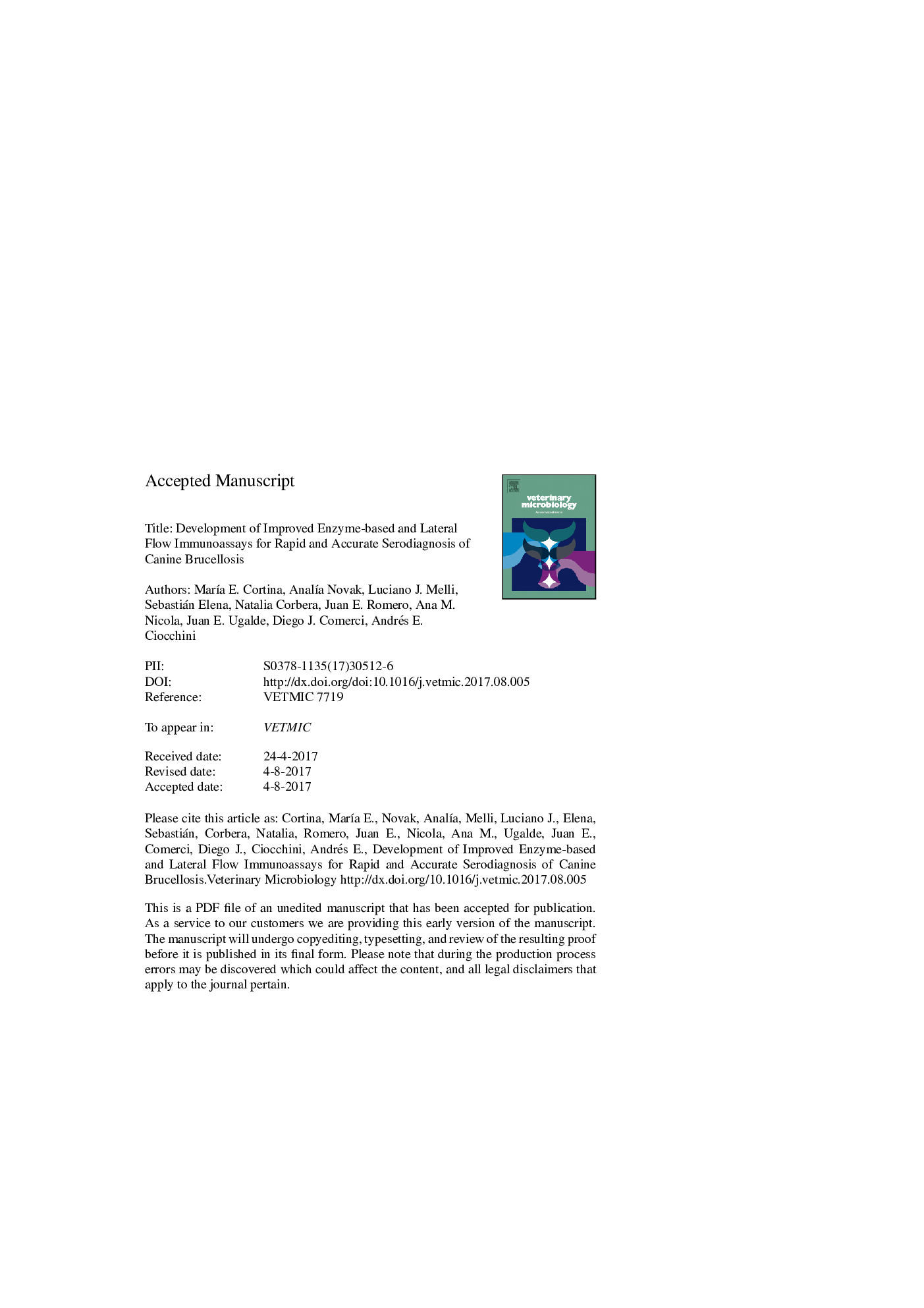| Article ID | Journal | Published Year | Pages | File Type |
|---|---|---|---|---|
| 5545184 | Veterinary Microbiology | 2017 | 36 Pages |
Abstract
Brucellosis is a widespread zoonotic disease caused by Brucella spp. Brucella canis is the etiological agent of canine brucellosis, a disease that can lead to sterility in bitches and dogs causing important economic losses in breeding kennels. Early and accurate diagnosis of canine brucellosis is central to control the disease and lower the risk of transmission to humans. Here, we develop and validate enzyme and lateral flow immunoassays for improved serodiagnosis of canine brucellosis using as antigen the B. canis rough lipopolysaccharide (rLPS). The method used to obtain the rLPS allowed us to produce more homogeneous batches of the antigen that facilitated the standardization of the assays. To validate the assays, 284 serum samples obtained from naturally infected dogs and healthy animals were analyzed. For the B. canis-iELISA and B. canis-LFIA the diagnostic sensitivity was of 98.6%, and the specificity 99.5% and 100%, respectively. We propose the implementation of the B. canis-LFIA as a screening test in combination with the highly accurate laboratory g-iELISA. The B. canis-LFIA is a rapid, accurate and easy to use test, characteristics that make it ideal for the serological surveillance of canine brucellosis in the field or veterinary laboratories. Finally, a blind study including 1040 serum samples obtained from urban dogs showed a prevalence higher than 5% highlighting the need of new diagnostic tools for a more effective control of the disease in dogs and therefore to reduce the risk of transmission of this zoonotic pathogen to humans.
Related Topics
Life Sciences
Agricultural and Biological Sciences
Animal Science and Zoology
Authors
MarÃa E. Cortina, AnalÃa Novak, Luciano J. Melli, Sebastián Elena, Natalia Corbera, Juan E. Romero, Ana M. Nicola, Juan E. Ugalde, Diego J. Comerci, Andrés E. Ciocchini,
